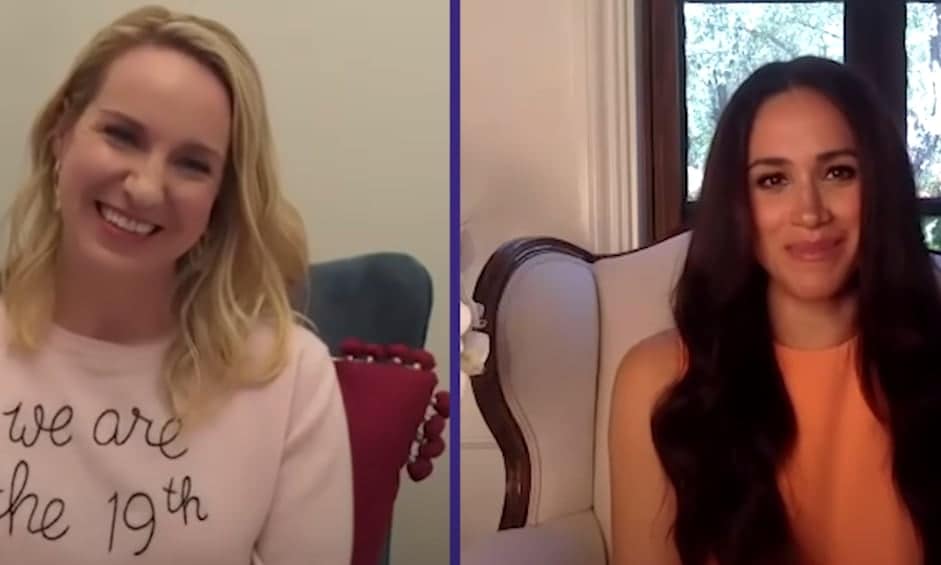The Duchess of Sussex turned the tables as she appeared at The 19th* Represents virtual summit on Friday, August 15. Meghan Markle interviewed the nonpartisan news organization’s CEO and co-founder Emily Ramshaw about fostering a newsroom centered on gender equity. While discussing the importance of a “women-focused news organization,” Meghan got candid about her own experience with the media and current state of the world. While, overall she said it was “good to be home,” the 39-year-old royal opened up about turning her “sadness” into motivation.
Scroll to watch the full interview!
“To come back and to just see this state of affairs, I think at the onset, if I’m being honest, it was just devastating,” Meghan said. Her and Prince Harry returned to the United States amidst a resurgence of the Black Lives Matter movement, incited by the killings of George Floyd, Ahmaud Arbery, Breonna Taylor and more. “It was so sad to see where our country was in that moment,” she continued.
“If there’s any silver lining in that, I would say that in the weeks after the murder of George Floyd, in the peaceful protests that you were seeing, in the voices that were coming out, in the way that people were actually owning their role…” she continued, “it shifted from sadness to a feeling of absolute inspiration, because I can see that the tide is turning.”
Meghan spoke with even more hope adding: “From my standpoint, it’s not new to see this undercurrent of racism and certainly unconscious bias, but I think to see the changes that are being made right now is really — it’s something I look forward to being a part of, and being part of using my voice in a way that I haven’t been able to of late.” She capped off with: “So, yeah, it’s good to be home.”
The mom-of-one also touched on her fascination with stories being sensationalized in the media. “At least from my standpoint and my personal experience the last couple of years, is the headline alone, the clickbait alone makes an imprint,” she said.
“That is part of how we view the world and we interact with other people – there’s so much toxicity out there,” she said. “In what is being referred to, my husband and I talk about it often, that economy for attention. That is what is monetizable right now when you’re looking at the digital space and media.”
,type=downsize)
